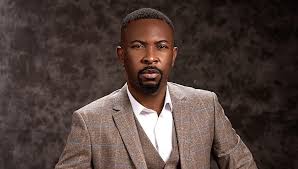Nigerian rapper Lil Kesh has opened up about his personal battles with mental health, revealing that he has self-diagnosed Attention Deficit Hyperactivity Disorder (ADHD) and struggles with anxiety.
In a candid interview on The Esther Show, the rapper explained that his condition has affected him since childhood, even though he only recently came to understand it more clearly.
“I diagnosed myself, but trust me, I know,” he said. “Everyone has a little of it in them, but it becomes a problem when it turns into a disorder. I’ve had my fair share since I was a child.”
Despite not seeking a formal medical diagnosis, he emphasized that his awareness of the condition comes from lived experience rather than mere speculation.
Lil Kesh, born Keshinro Ololade, spoke openly about the emotional challenges that come with managing ADHD and anxiety, particularly in a fast-paced and unpredictable environment like Nigeria.
“Dealing with things—anything—can cause anxiety. But I believe that lack of clarity can cause anxiety for me,” he explained.
“Once I know what I’m dealing with or what type of emotions I’m dealing with, then my problem is half solved and the anxiety goes away.”
His comments resonated with many viewers, especially those who’ve experienced similar emotional turbulence but lacked the language to express it.
Despite his honesty, Lil Kesh admitted he has never undergone therapy, citing trust issues and a lack of adequate mental health support in Nigeria.
“When I needed it the most, I wasn’t privileged to get it,” he said, hinting at the systemic inadequacies in the country’s mental healthcare system.
His remarks touched on the emotional isolation many young Nigerians face, especially public figures who are expected to remain strong despite their private struggles.
He also acknowledged that conversations around mental health are still stigmatized in Nigeria, which makes it difficult for people to seek help without being judged.
Moving from his personal life to the broader societal context, Lil Kesh reflected on Nigeria’s political and infrastructural challenges.
He expressed frustration with the slow pace of progress and urged Nigerians to be realistic about the timeline of change. “Change in Nigeria is going to take years; it’s not happening anytime soon,” he said.
“The earlier we make peace with that, the better for us because the change we seek is not going to happen anytime soon. It could happen over time, but no be tomorrow. Nigerians are trying their best—we’re trying now.”
His tone was a mix of cautious optimism and hard-earned realism.
Lil Kesh contrasted the conditions in Nigeria with what he has observed in the UK, where he currently spends time. He praised the structured systems in place abroad, especially on issues like road safety and public order.
“On the roads in Nigeria, everyone is mad. It’s lawless. Here in the UK, there are speed limits, restrictions… things work,” he noted.
His comparison highlighted the frustrations of many Nigerians who feel the country lacks the foundational systems needed for sustainable development.
Throughout the interview, Lil Kesh’s vulnerability stood out as a powerful reminder of the emotional toll that fame, societal pressure, and systemic dysfunction can have on young artists.
By speaking so openly about his struggles, he not only challenged the stigma around mental health but also inspired a broader conversation about emotional well-being in the Nigerian entertainment industry.
“We all dey try,” he concluded. “But sometimes, we need to talk about the things we carry inside.”







